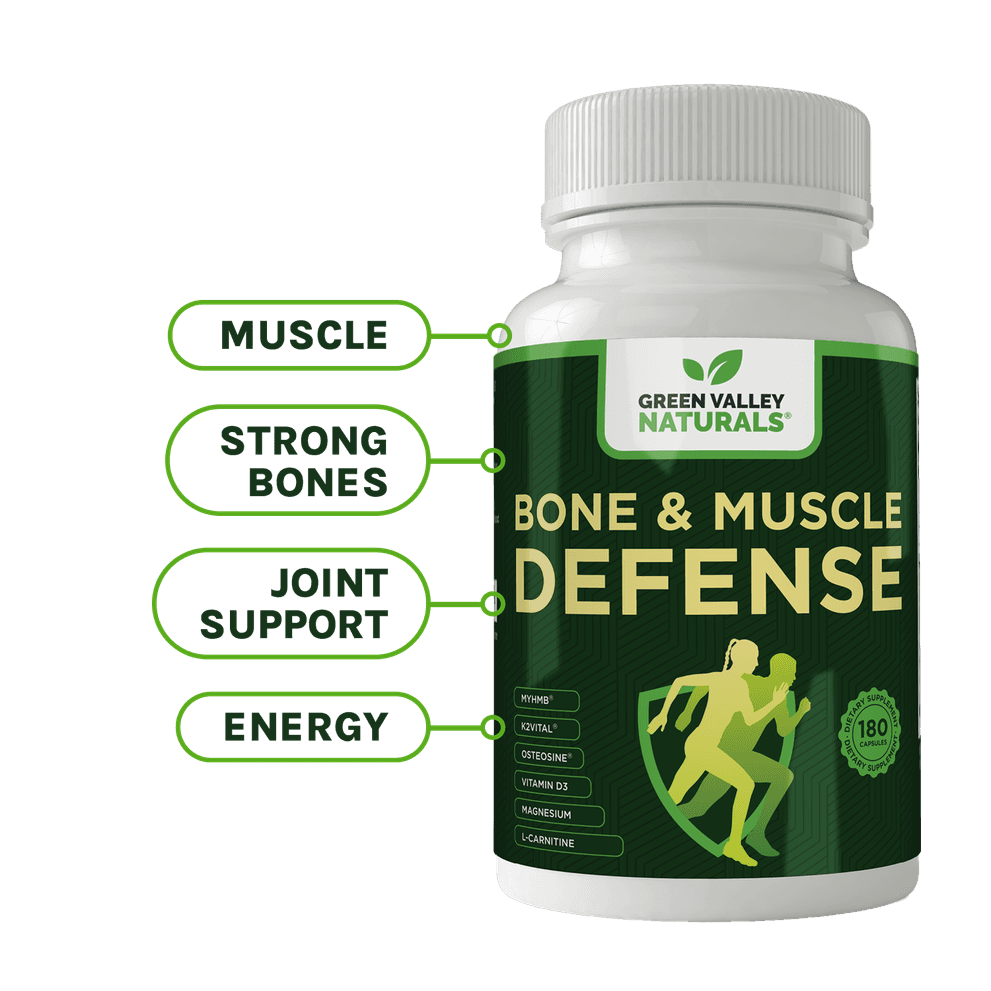Broken Bones Can Affect More Than Independence
Weak bones can threaten your life. Break a hip in your senior years and you drastically increase your
risk of dying.
1
And hip breaks are pretty common, as you probably know. 300,000 Americans a year suffer one – the most serious, life-threatening fracture an older person can endure.
In one study it was found that about one-fourth of elderly people who had a hip fracture were dead a year later.
Bones keep you going way beyond their obvious role in supporting your muscles and organs. Inside your bones are where stem cells get made into red and white blood cells.
Today, let’s look at one of the most important things you can do to avoid weak, fragile bones. . .
While most folks seem to know that getting enough vitamin D and calcium can support better bones, it’s only recently that researchers have zeroed in on another nutrient that bones need in large amounts: Magnesium.
Bone-Saving Magnesium
Although magnesium’s importance in keeping older bones stronger has taken researchers somewhat by surprise, they should have expected it. Most of the magnesium in the body is kept in the bones, while much of the rest is in the muscles.
So the medical community should have known that all that magnesium in the bones was there because the bones needed it in an important way.
It’s a 20-year study conducted in Finland and England that has opened eyes to magnesium’s part in keeping bones strong. This research involved more than 2,000 middle-aged men. The scientists found that during two decades, the men whose blood levels of magnesium were in the higher groups enjoyed a 44 percent reduced risk of fracturing a bone.2
Even more impressive: None of the 22 men with the highest magnesium levels had any bone fractures. Not a single one.
According to the researchers, even though your blood level of magnesium generally depends on your diet and supplements, some people with intestinal problems and folks who are taking medicine that depletes the body of magnesium may have low levels even if they consume a lot of magnesium-rich foods. In those cases, you can only restore your magnesium if you stop taking the medication or fix the underlying condition that’s restricting your magnesium.
And while older people may have difficulties absorbing and using magnesium, the researchers believe that taking magnesium supplements can offset that kind of shortage.
When You're Running Low on Magnesium
Unfortunately, most of us are playing Russian roulette with our bones and our health because we just don’t get enough magnesium.
The folks who are in the greatest danger of this shortage may be those who have diabetes or who have been classified as pre-diabetic. Researchers have found that this is one of those double whammy situations – being low in magnesium makes your risk of diabetes worse and then your blood sugar irregularities can further deplete your body of this important mineral.
How To Get More Magnesium
If you have any blood sugar issues at all, you should be taking magnesium supplements. That’s just common sense. And a word to the wise: To protect your bones, you should do more than take a magnesium supplement.
To get magnesium from your meals, keep in mind that the foods richest in magnesium include:
- Almonds
- Cashews
- Peanuts
- Spinach
- Seaweed
- Fish like salmon and mackerel
- Beans like Lima beans and navy beans
You should also do what are called “weight bearing” exercises. These impact exercises, which entail jumping, running and landing on the ground, have been shown to stimulate the growth of stronger bones. Examples would be running, walking, jumping rope, lifting weights, dancing or playing tennis.
It doesn’t take a lot of exercise to improve your bones. A few minutes a day can do the trick. For instance, a study at Brigham Young University had women jumping around in an imitation of the way fleas hop. They jumped ten times, twice a day for about 16 weeks.
The researchers found that this activity put more strength and mass into their bones.3
So, even if you feel a little foolish jumping around like an insect (just do it behind closed doors so the neighbors can’t see), simple movement of this type – along with more magnesium – may be just what you need to prevent the bone fractures that ruin so many people’s golden years.


